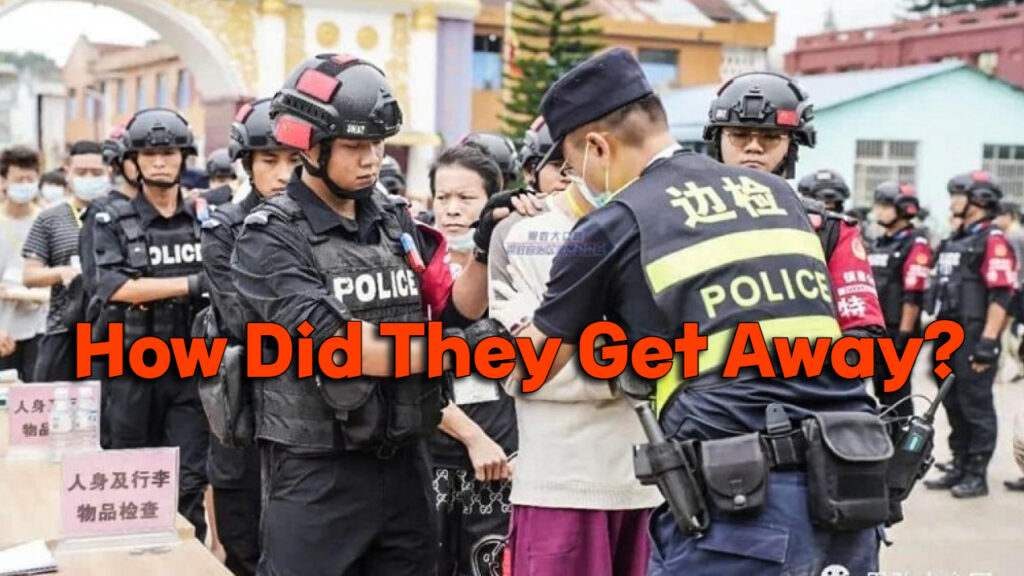Myanmar, Is It Safe?

Myanmar’s civil war has reached a new level. Operation 1027 refers to a military operation by the Brotherhood Alliance comprising the Kokang Army, Arakan Army and Kokang Army against government forces in northeastern Myanmar. Well-armed with modern weapons including drones, the brotherhood was able to score a decisive victory against the military junta which seized power from the democratically elected government led by Aung San Suu Kyi in 2021. Many people assumed that the weapons were supplied by China.
At almost the same time (albeit earlier) on 20 October 2023, Chinese law enforcers allegedly worked in collaboration with Myanmar authorities to arrest and extradite criminals operating scam call centres along the border of Eastern Shan State. Some 100,000 suspects were arrested and brought back to China. Many people also assumed that this military operation was meant to eradicate the scam centres, but some things just don’t add up. If the purpose of the military operation (allegedly supported by China which later called for peace) was meant to destroy the scam call centres, why was there a need to arrest the scammers before the brotherhood moved in? If the scammers had already been arrested by 1020, why was there a need for a military operation on 1027? Some say that the military operation was an act of revenge against scam operators who had killed undercover Chinese policemen. It gets “better”.
It is a known fact that China had been supporting insurgent forces in Myanmar since time immemorial, the most prominent of which is the United Wa State Army. But why did the Chinese authorities collaborate with the Myanmar government to arrest scammers (if that’s really the case), then gave the rebels weapons to destroy it? The brotherhood is led by Peng De Ren who had an axe to grind with the man who betrayed his father, but let’s face it, there are no good guys in this equation. The rebel armies are mafias with a long history of smuggling and other nefarious business activities. Replacing one mafia family with another will not solve the problem of crime in that region. We’re back to square one. The Chinese authorities had not done the world a favour.
While one part of Myanmar is at war, another part could be celebrating. One needs to understand that Myanmar is not a homogeneous country. Most of the Bamar majority people living in the heartlands have absolutely no interest in the things going on in the tribal regions at the peripheries. Neither have they been appreciably affected.
Recently, I found a new channel (Inside Myanmar) documenting hip places and cool things to do around Yangon. Civil war in the peripheries of Myanmar doesn’t seem to have affected life in Yangon thus far but it remains to be seen whether the exiled NUG’s armed forces will call upon their forces, the People’s Defence Force, to invade the big cities. This new channel I’m talking about is obviously backed by Korean businesses. A big gamble indeed, but realistically speaking, the government presence in the tribal regions has always been weak. Having success in overthrowing central government rule in these territories is not an indication that the junta sitting in Naypyidaw is in any danger of being toppled. The NUG’s aim of reverting to democracy is still a distant dream. The rebel armies will see itself being thinned out and hugely outnumbered in the Bamar heartland.
Meanwhile, people in Yangon are still partying. It’s as they don’t mind if the illegitimate regime has not made life difficult for them. Will the tribal regions just break away and become federal states? Would the central government not mind even if they were planning to declare independence? Life seems to go on as usual around Yangon regardless of the country’s political future.
You can find links to the videos on my Facebook Group, Travellers’ Tales.
 Check Out Knapsack Books by Chan Joon Yee
Check Out Knapsack Books by Chan Joon Yee